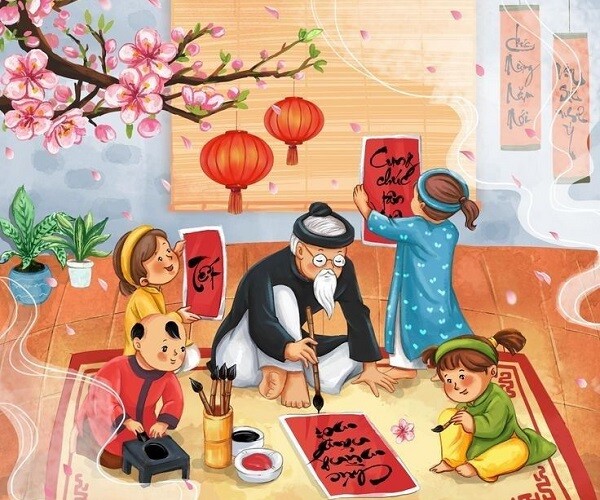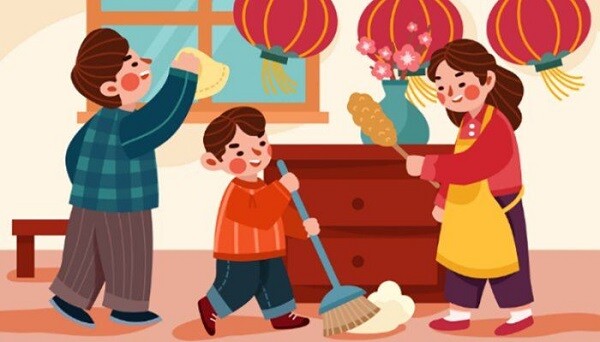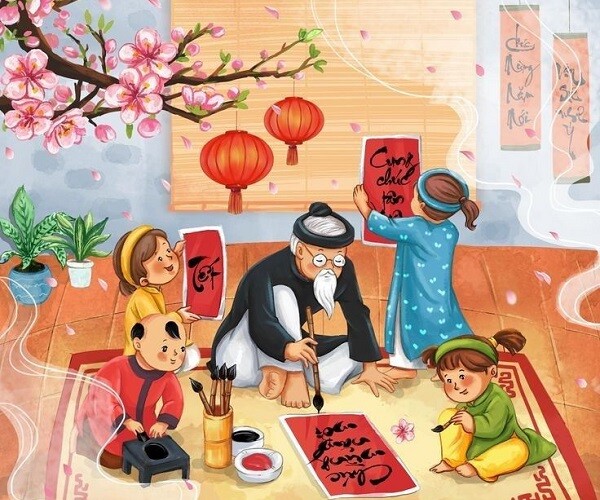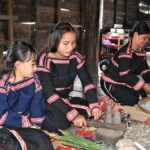Many parents worry about their children misbehaving during the Lunar New Year holiday when they are at home.
In reality, 70% of a child’s time is spent with their family, so family education has a significant impact on their character formation and future development. Setting “house rules” is an important aspect of family education.
But how do you set appropriate rules for children during the Lunar New Year holiday? And once the rules are set, how do you ensure that children follow them?
The essence of setting rules for children is not just about making them behave but also about nurturing their understanding of the rules, thereby instilling good habits, awareness, self-discipline, and self-motivation.
Therefore, setting rules for children and fostering a sense of compliance cannot be achieved overnight. It requires parents to cultivate this slowly and subtly in their daily lives.
This will undoubtedly be another long-term “challenge” in parenting, requiring patience and a well-thought-out method.


Clear division of labor for children before the Lunar New Year
To instill a sense of rules in children, it is essential to have a clear division of labor among family members.
In a family, each member has a unique role and corresponding responsibilities.
The family functions as a complete and dynamic system, with each member, be it the father, mother, or children, contributing to its maintenance.
For instance, on New Year’s Eve, families are usually busy with various tasks such as preparing festive items, setting up offerings, and cleaning. These tasks should not be left to one person. Instead, parents should divide the work reasonably according to the actual situation and inform their children about their assigned tasks so they know what is expected of them.

Clear division of labor for children before the Lunar New Year.
Parents can also invite their children to participate and let them choose tasks within their capabilities.
During this process, parents serve as the best role models, helping children realize that everyone has their part to contribute. When everyone fulfills their duties, it creates a comfortable and warm environment, making the New Year’s Eve dinner even more delightful.
Children who grow up in a family with a clear division of labor tend to learn to respect others and gradually develop a sense of rules.

Explain cultural rituals to children before the Lunar New Year
Setting rules is a process that requires children to exert intellectual effort and courage, but as long as the rules are reasonable, children should strive to follow them.
Many parents find this much more challenging than they imagined, especially when children express negative emotions. In such cases, parents may feel helpless and unwilling to confront their children’s emotions, leading to quick compromises and a lax attitude toward rule-breaking. This “leniency” makes it difficult to establish effective rules and boundaries.
In reality, while children may understand the concept of boundaries, they might be restricted in expressing their emotions. Therefore, parents need to accept their children’s negative emotions.

Explain cultural rituals to children before visiting relatives during the Lunar New Year.
For example, before visiting relatives during the Lunar New Year, parents should explain the rules and rituals of welcoming the new year. This helps children understand the significance of each custom and creates opportunities for bonding between generations.
Parents can share interesting stories about these customs, such as why we clean the house thoroughly before the New Year or why each family prepares a tray of five types of fruits.
Additionally, preparing for these visits includes teaching children how to show respect to their elders and relatives, such as how to bow or offer tea.
These lessons are educational and help preserve the cultural identity of the nation, ensuring that the younger generation appreciates and carries on the family’s beautiful traditions.

Allow children to make independent choices and express their needs
It is essential to nurture children’s understanding of rules and allow them to make independent choices.
For instance, before the Lunar New Year, parents can encourage children to participate in preparing for the festive celebrations, such as choosing decorations or deciding on dishes for the holiday.
This way, children will learn the value of preparation and responsibility. Parents can also discuss the significance of each decorative item or traditional dish, helping children understand their culture and customs better.
Moreover, when children have the opportunity to make their own choices, they will feel proud and more motivated to engage in family activities.

Make the Lunar New Year a meaningful, joyful, and auspicious occasion.
Additionally, during the preparation process, parents should create an environment where children can express their opinions and emotions. For example, if a child wants to try a new recipe for Lunar New Year candy, parents can encourage their creativity and exploration by trying out the new recipe together.
This makes the Lunar New Year atmosphere more intimate, and children feel valued, developing confidence and independence in their decisions.
To instill a sense of rules in children, parents should set reasonable rules and lead by example. Let’s make the Lunar New Year a meaningful, joyful, and auspicious occasion.
The Ultimate Guide to Vietnam’s Unique Cultural Enclave: Exploring the Non-Lunar New Year Celebrating Region of Tay Nguyen
For the Jrai people, Tet is not celebrated at the beginning of the year, nor does it have a fixed Eve. Each village and household chooses their own day to host their celebrations. Nonetheless, this is always a time for the community to come together, relax, and enjoy each other’s company. They drink ruou can (a traditional Vietnamese rice wine), share festive feasts, and wish for a year filled with abundance and peace.






































